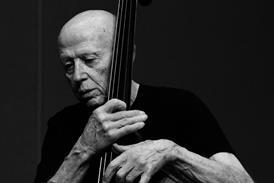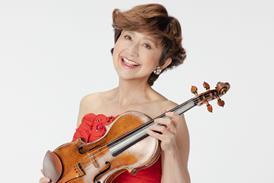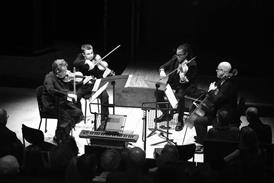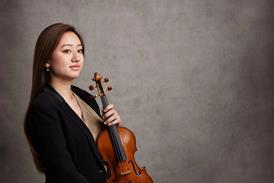Theo Olof, the former co-concertmaster of The Hague Philharmonic
and the Royal Concertgebouw Orchestra, has died at the age of
88.
Born in Bonn in 1924, he fled Nazi Germany for the Netherlands in
1933, and began studying with Oskar Back. In 1935 he made his debut
with the Royal Concertgebouw Orchestra under Bruno Walter and in
1951 he won fourth prize at the Queen Elisabeth Competition in
Brussels. In the same year he was appointed co-concertmaster of The
Hague Philharmonic, where he shared leadership duties with Herman
Krebbers, who had also studied with Back.
From 1974 to 1985 Olof was co-concertmaster of the Royal
Concertgebow Orchestra. He retired from professional performance in
1994.
During his orchestral career he was offered concertmaster positions
abroad – with the Philharmonia Orchestra in London under Otto
Klemperer, and with the Philadelphia Orchestra under Eugene
Ormandy. He explained in an interview for The Strad this
year (The Art of Leadership, August) why he turned the latter offer
down. 'The money was much more than our salary in Europe – but I
relished the free time I had in my role as co-concertmaster. Also,
there's a feeling that the concertmaster is an important
spokesperson, not only for the orchestra by also for music in one's
country and even beyond.'
In the same interview, Olof defined the leader's job in an
orchestra as 'a go-between, a resourceful diplomat who's
responsible for translating the conductor's gestures into
comprehensible musical actions. They must not only know the score
but also ensure that the conductor's interpretation makes sense to
the orchestra.' He added: 'I certainly think my time as a solo
violinist informed my approach to the role, since soloists are all
too familiar with the stress of responsibility.'
- News
- For Subscribers
- Student Hub
- Playing Hub
- Podcast
- Lutherie
- Magazine
- Magazine archive
- Whether you're a player, maker, teacher or enthusiast, you'll find ideas and inspiration from leading artists, teachers and luthiers in our archive which features every issue published since January 2010 - available exclusively to subscribers. View the archive.
- Jobs
- Shop
- Directory
- Contact us
- Subscribe
- Competitions
- Reviews
- Debate
- Artists
- Accessories
































No comments yet